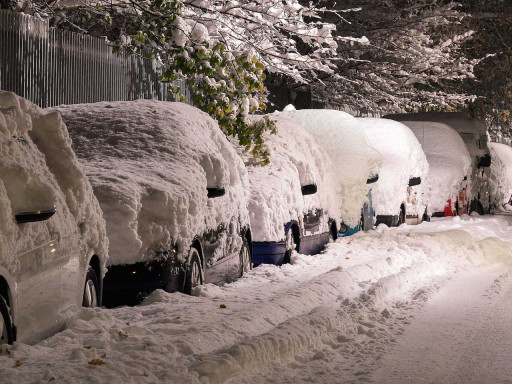Information given out by the media often carry warnings that you should not drive “unless it is absolutely necessary” and we certainly should not ignore this advice.
However, there are often times when driving is necessary and in many cases for drivers of commercial vehicles, company business will demand that a journey is made.
Vehicle checks
- Ensure lights are working, and are clean and snow free
- Ensure that the vehicle windscreen and wing mirrors are clear of ice and snow and fully demisted
- Check that windscreen wiper blades work properly, all windows are clean and the washer bottle filled with screen wash that is not frozen
- Ensure that the whole car is free of snow to prevent snow sliding down the windscreen
- Ensure the battery is fully charged
- Check tyre condition, tread depth and pressure and that brakes are working well.
- Ensure that fluid levels are kept topped up – anti freeze, oil and fuel
Emergency Kit
- Tow rope
- A shovel
- Wellington boots
- Hazard warning triangle
- De-icing equipment
- First aid kit in good order
- A working torch
- A blanket
- Warm clothes
- Emergency rations – non - alcoholic hot drink, chocolate
- Fully charged mobile phone
Useful reminders
- Footwear should be dry and provide enough grip to avoid “pedal slip”
- Avoid sudden vehicle movements as these can cause loss of control
- If your vehicle skids take your foot off the accelerator and point the vehicle in the direction you want to go
- If you have an automatic gear box, if possible select gear 2 (second gear) in order to avoid first gear
- Consider other road users including cyclists and motor bikes, who may be blown over in strong winds, slip on ice etc.
- Keep vehicle well ventilated so the hot air from the heater does not make you drowsy
- Use dipped headlights when visibility is poor or it is raining
- Be aware of icy patches under bridges and tree lined sections of road
- Refrain from over-taking vehicles when the weather deteriorates
- Switch off distracting noises
Fog
- Avoid driving in fog unless your journey is absolutely necessary, it is the most dangerous weather condition. An accident involving one vehicle can quickly involve many others, particularly when driving too close to the vehicle in front of you.
Rain
- Rain reduces your ability to see and greatly increases the distance required to slow down and stop. Remember you will need about twice your normal breaking distance.
- When roads are flooded avoid the deepest water, which is usually near the kerb and do not attempt to cross water if you think it will be too deep. If you do go through water remember to test your brakes once you are through.
Preparation before travelling
Listen to local and national weather broadcasts and travel bulletins on a regular basis, for the areas you will be travelling through, as conditions can change rapidly.
Consider postponing your journey if at all possible and discuss with your employer if you have any concerns.
If you decide you really must travel
- Let someone know where you are going and what time you hope to arrive
- Plan an alternative route in case your main choice becomes impassable
Take care and be safe this winter.

